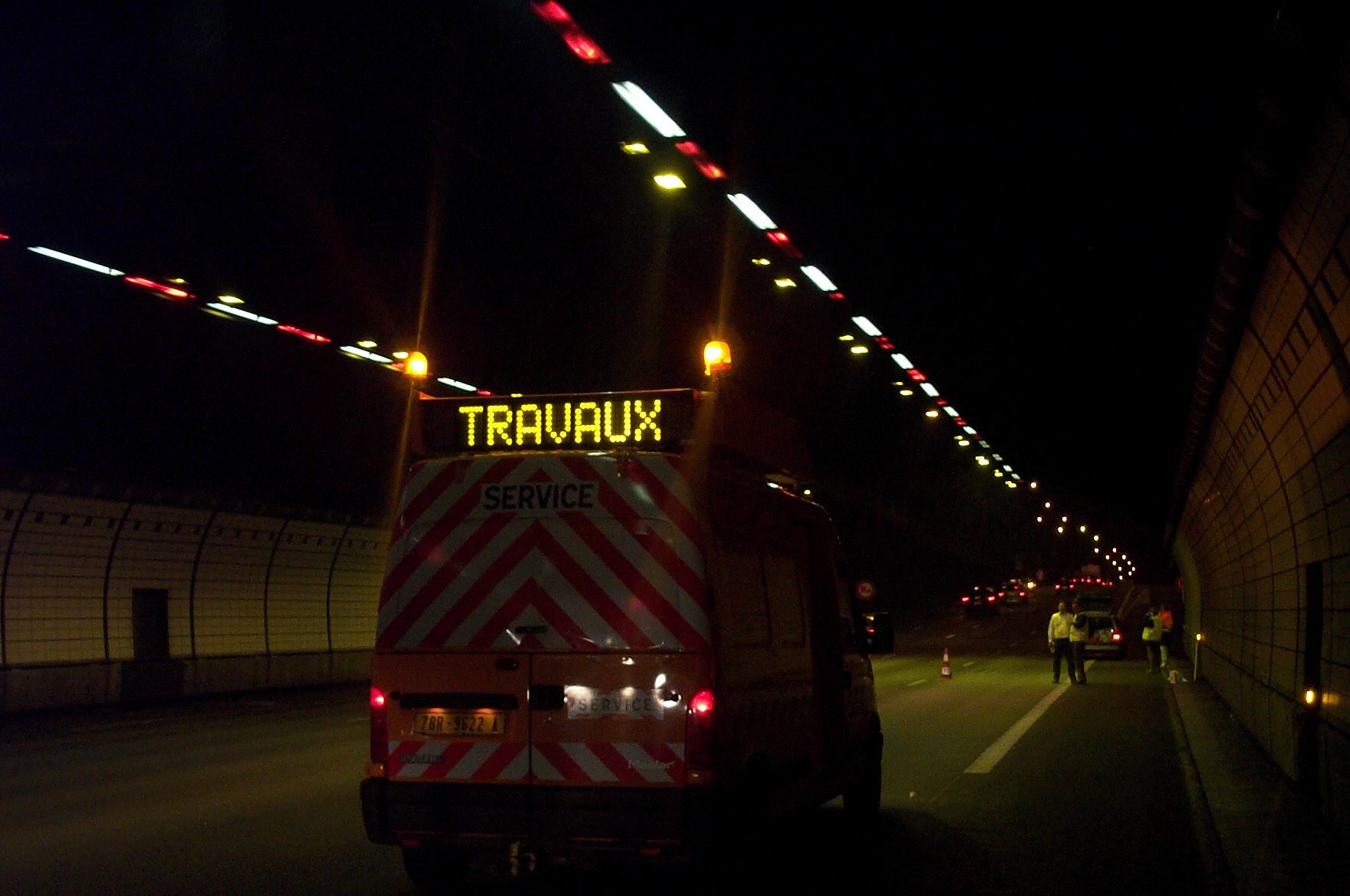
Road Tunnels Manual

Road Tunnels Manual
Generally speaking, tunnels are considered to provide a suitable or even higher level of safety the the open road network, Nevertheless, the potential consequences of incidents (breakdown, accident or fire) may be far more serious in tunnels than in the open air. Moreover, as tunnels are very often obligatory crossing points and are sometimes bottlenecks on the network, each total or partial closure can lead to major traffic disruptions or can oblige users to travel long distances on alternative routes.
For these reasons, operators and road authorities have to ensure the operational continuity and safety of road tunnels. They must guarantee to the users crossing the tunnel a level of service quality and safety complying strictly with regulatory requirements in force.

Depending on national regulations, tunnel operators and/or traffic police have to manage the traffic in tunnels (and on the route where the tunnel is located). In particular, they need to cater for the safety of users and any staff who may be working inside the tunnel (operating staff, sub-contractors, etc.). In several countries, the traffic police are in overall charge of traffic management and traffic patrolling, while the operator is in charge of operational tasks such as maintenance, operation of tunnel equipment, traffic surveillance and traffic assistance.
Generally speaking, typical tasks for the operators are:
Traffic surveillance and operation of tunnel equipment
Major tunnels (in terms of length, traffic density and complexity of the tunnel) are usually managed from a Traffic Control Centre. Very often, the Control Centre is equipped with remote surveillance systems (e.g. closed circuit television, automatic incident detection) and can remotely control certain equipment (ventilation, signalling, tunnel closure barriers, etc.).
Traffic Patrols
In certain cases, the operator can also deploy patrols that can provide a direct surveillance of tunnel users. These patrols can intervene very rapidly in case of need.
Management of civil engineering works
Civil engineering works in the tunnel undergo regular inspections. There is also regular maintenance of facilities such as drainage systems, gutters and all secondary structures (premises inside the tunnel, technical rooms, etc.),
Management of equipment
In major tunnels, the operator deploys several types of equipment that in the operation phase are under its own control. Tunnels are also equipped with systems that allow the operator to monitor the status of equipment. The operator must cater for the maintenance of equipment fitted in the tunnel. Here again, it is possible to have access to computerised tools to assist in performing this task.
Management of emergency situations
Whatever the nature of the incident, whether it is a problem related to traffic (accident, interlinked accidents, fire, etc.) or to equipment (loss of power supply, malfunctioning of data transmission network, etc.), to intervene or to inform/activate the pertinent service/authority is the standard duty of the operator in charge of the surveillance.
Technical and Administrative management
In addition to tasks directly related to tunnel operation, the operator provides the technical and administrative services supporting the management of the infrastructure and, of course, the personnel. The operator caters for the design of any equipment upgrading, the direction of the works, the investment and operational budgets for the proper functioning of the tunnel. Lastly, the operator also develops statistics and monitors the achievement of its own objectives by preparing periodical reports on the operation of the tunnel/route (financial indicators, traffic indicators, etc.).
The Technical report 05.13.B "Good Practice for the Operation and Maintenance of Road Tunnels" deals with this subject in parts 2 and 4.